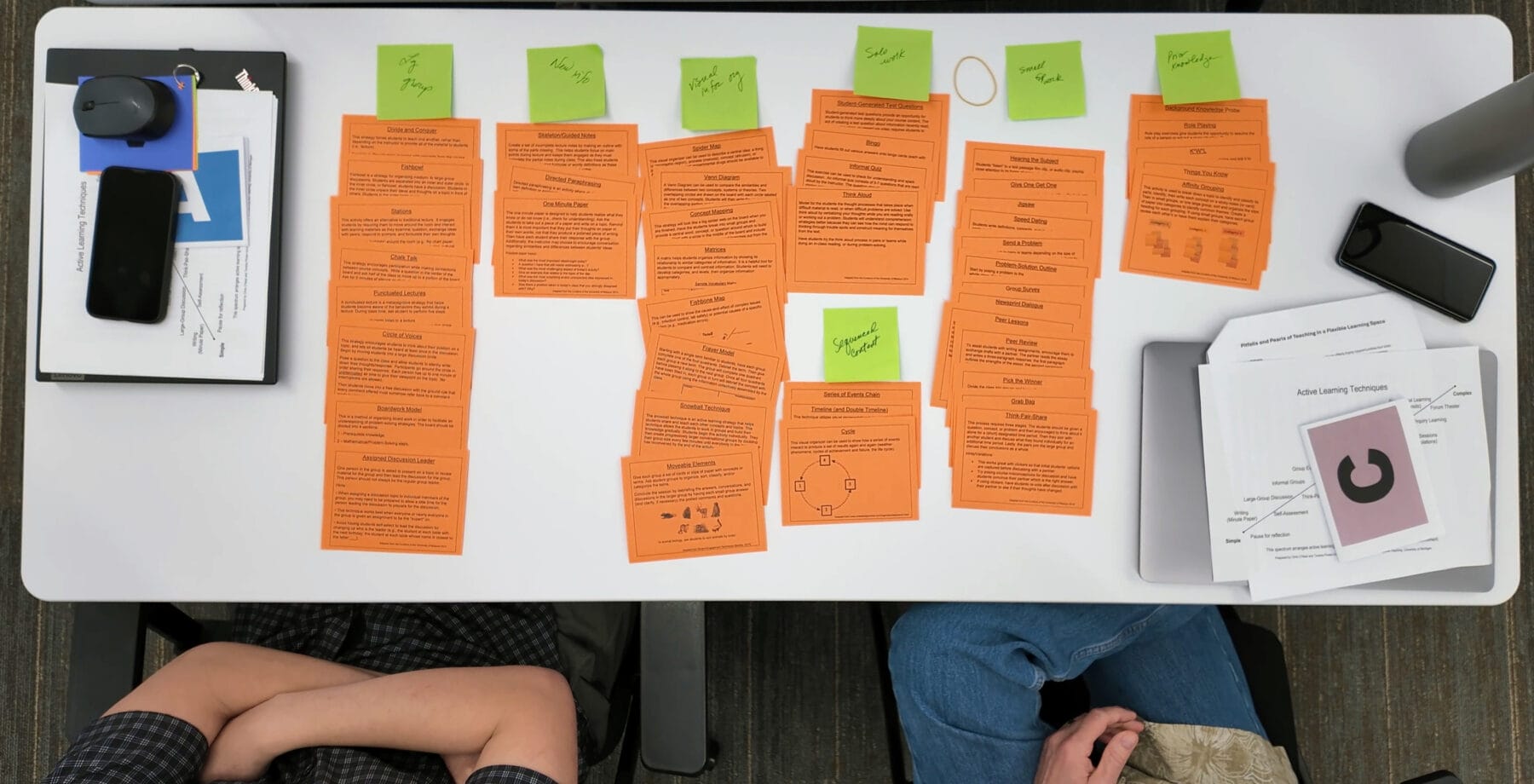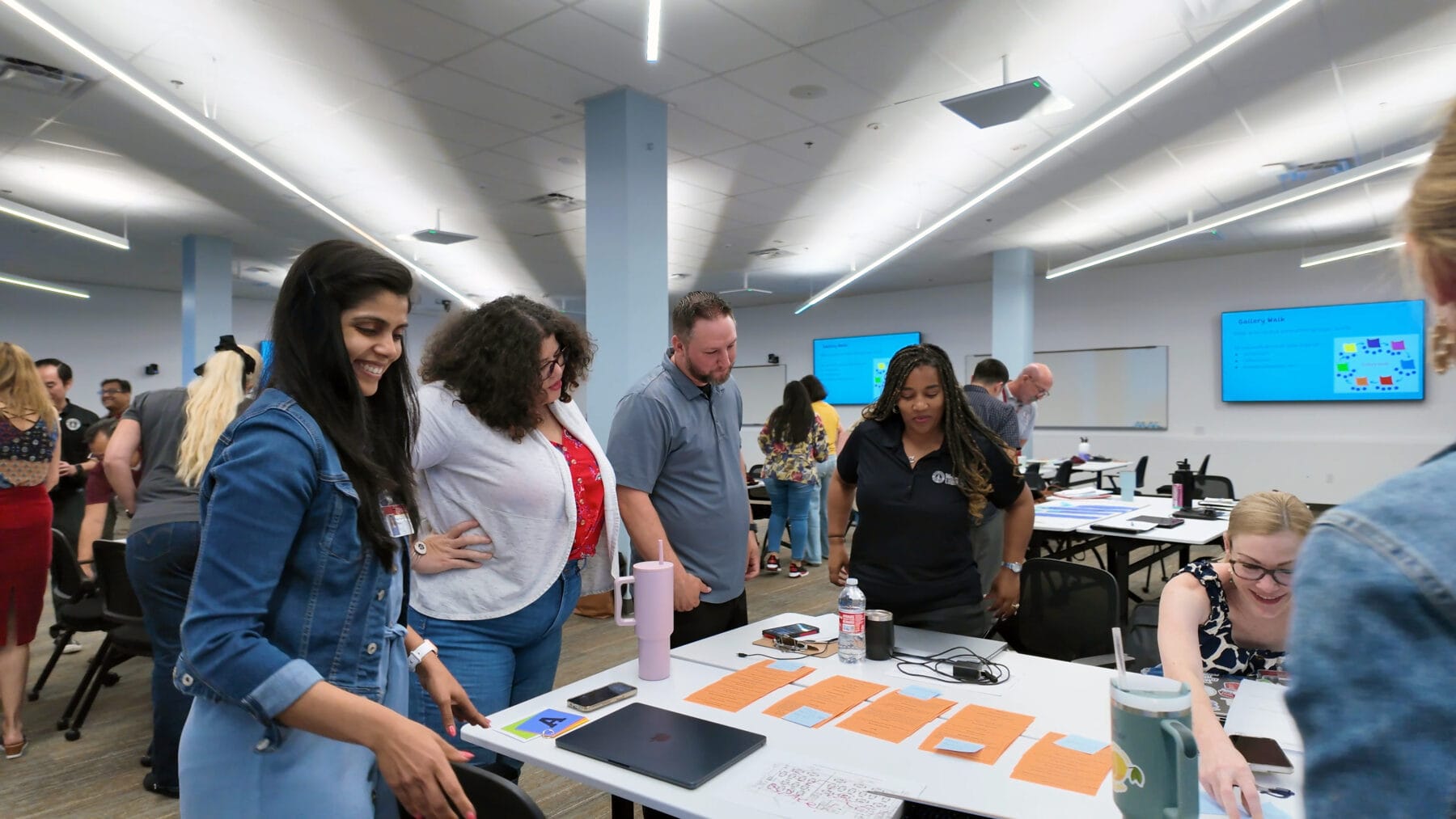
Faculty Learning Communities

What is a Faculty Learning Community (FLC)?
If you’re interested in beginning a new FLC, contact CETL! We’re happy to help!

What is a Community of Practice (CoP)?
If you’d like to start a CoP, contact CETL with your idea!
Current PLCs
Generative AI PLC
As the AI PLC completes their survey research and manuscript, a new Generative AI PLC is forming. This new professional learning community is scheduled to launch Fall 2024. Check back here for updates on the the group’s progress.
PAST FACULTY LEARNING COMMUNITIES
PLC: Artificial Intelligence
The AI Professional Learning Community (PLC) launched in the Spring of 2023. Participants across the campus–including faculty, staff, and administrators–joined this PLC. This AI PLC disseminated a campus wide AI survey in Fall 2023, shared their will research results in a CETL session entitled “Spring into the future: Unveiling WesternU’s generative AI insights” in April 2024. Their research poster was accepted as an ePoster session at AMEE 2024 and the group is finishing up their manuscript for publication.
FLC: Grit and the Growth Mindset
Angela Duckworth defines grit as the power of passion and perseverance for long term goals, be they academic, professional, or personal (Duckworth, 2016). Grit entails “working strenuously toward challenges and maintaining effort and interest over years despite failures and adversity and plateaus in progress“ (Duckworth, Peterson, Matthews, & Kelly, 2007, p. 1087). Grit is a character trait many believe should be cultivated in students to enhance their academic perseverance and success.
It is not intelligence that makes people excel in a given area but rather effort and practice. The new neural networks that form as a result of hard work and effort are what make us smarter, not our innate abilities. Growth mindset learners believe that new abilities can be developed through practice. Fixed mindset learners believe that intelligence is fixed and avoid challenges for fear of failure (Dweck, 2016). Research suggests that by fostering a growth mindset in our students, we can achieve better learning outcomes.
The desire to bolster grit and the growth mindset has been identified across the Pomona and Lebanon campuses. In response to this, we are launching a Grit and the Growth Mindset FLC for the 2019-20 Academic Year. This FLC will aim to identify and pilot teaching and learning strategies that promote grit and the growth mindset among WesternU students and measure the impact of these upon student learning. Findings emerging from this process will be disseminated to the campus and educational research communities.
References:
Duckworth, A. (2016). Grit: The power of passion and perseverance. New York, NY: Scribner.
Duckworth, A., Peterson, C., Matthews, M.D., & Kelly, D.R. (2007). Grit: Perseverance and passion for long-term goals. Journal of Personality and Social Psychology, 92(6), 1087-1101.
Dweck, C.S. (2016) Mindset: The new psychology of success. New York, NY: Ballantine Books.

